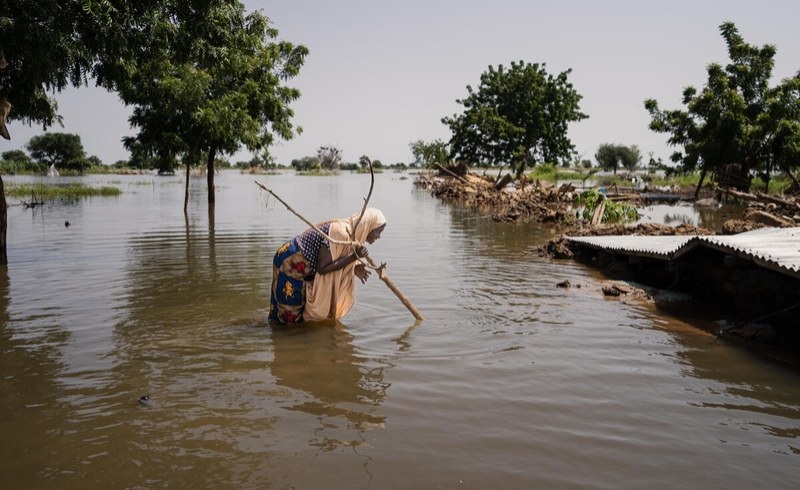
Floods devastate west and Central Africa as millions displaced and aid efforts ramp up
Flooding across West and Central Africa has caused widespread devastation, displacing millions and triggering humanitarian crises. Countries affected include Nigeria, Cameroon, Niger, Chad, Mali, Ghana, and Liberia, with over four million people—many of them children—caught in the disaster.
In Nigeria, Borno state has been severely impacted, with over a million people affected and 40% of the capital, Maiduguri, submerged after a dam burst. Neighboring Cameroon is also facing a crisis in its Far North region, where floods have displaced over 200,000 people and destroyed nearly 45,000 homes.
Chad reports that 1.5 million people have been affected by flooding since July, with 145 fatalities and thousands of homes destroyed. Similarly, in Niger, nearly 100 deaths and the displacement of over 137,000 people have been recorded due to heavy rainfall since August.
Mali has declared a state of natural disaster to manage the floods, with thousands of people affected in the Segou region and beyond. The International Rescue Committee and UNICEF have both emphasized that climate change is contributing to these extreme weather patterns, and more aid is needed to prevent further suffering.
Efforts are underway across the region to provide shelter, food, and emergency support to flood victims, although many areas are struggling to cope with the scale of the disaster.







